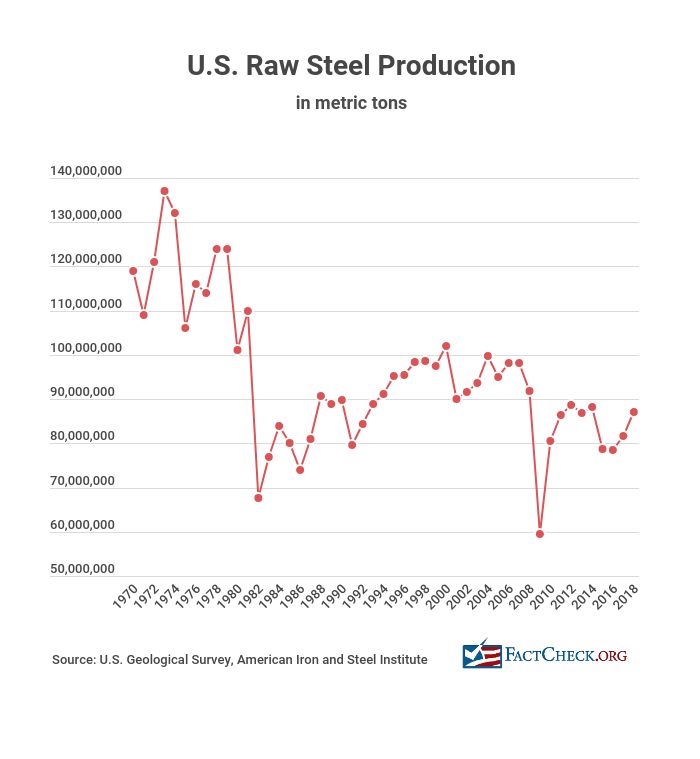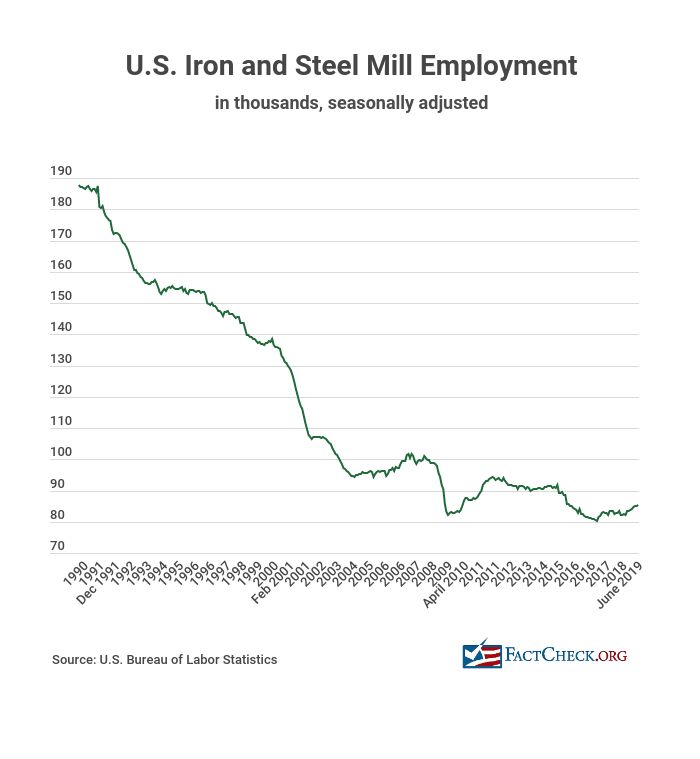Quote:
And then ask yourself it was a bad thing we let those industries die to reinvest in other higher growth, wealth creating industries
And then ask yourself if the victims of those industries dying have been given a chance to participate in the other stuff making people rich.
I'll be honest, I don't have any idea what point you're trying to make.
Your questions are fraught with bad assumptions. You mentioned steel. Here is a chart of US steel production over the last 50 years or so. It's largely flat from 1980 on.

Here is the number of people employed in US steel manufacturing from 1990 on (best data I can find). It was 650,000 at its peak in 1953 - the decline began well before Reagan or any of the other things you mentioned.

And here is the explanation for the two:

Much like the example I gave with farm labor and tractors, the value of a blue collar steelworker dropped because the work became much, much, much more productive. We needed fewer people, and the people we needed had the skills required, and participated in the increase. Accordingly, the demand for the skills and abilities of the median and 20th percentile is reduced relative to the demand for the skills and abilities of the 95th percentile.
The problem is you look at that and say, well the graph diverges and that is bad. But in real terms this means that
everyone's income increased from the period on the chart, but the 20th percentile was largely flat.
Nobody got poorer. Arguably everyone in fact got much wealthier - the standard of living for the 20th percentile in 2020 is unimaginable compared to the same group in 1970.
Nobody got richer at anyone's expense.. its just that the skills and labor of some are worth the same in real terms as they were before, but the skills and labors of others are worth more. As productivity increases, that will continue to rise.
So for one thing, no industries 'died'. it's simply not true. We still make steel. We make more today than we did in 1953 at labor peak - 36 million tons then vs around 90 million tons now. That's about 2/3 of our peak production in 1969 at 141 million tons... but we are in some cases ten times more efficient.
And is it bad for the market to create growth? No. Because if we had not the standard of living and technology gains I mentioned would not exist. These things benefit everyone.
Victims of industries dying is simply an untrue narrative based on false assumptions.
I still don't see what
any of this has to do with
a) the US has a spending problem
b) it is bad that some people are richer than others
c) we should tax the wealthy







